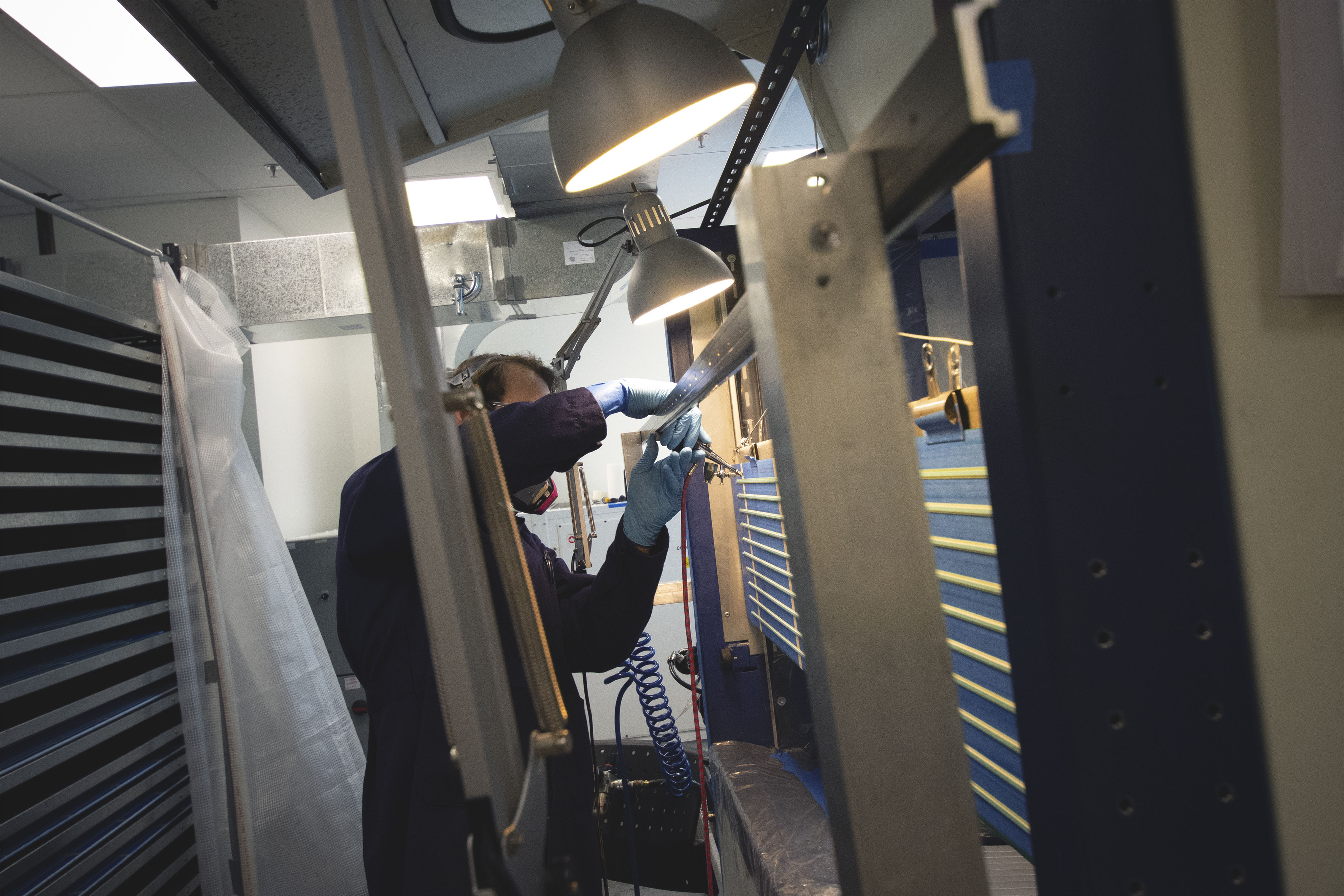
ATLAS explores a range of physics topics, with the primary focus of improving our understanding of the fundamental constituents of matter. Some of the key questions that ATLAS addresses are: What are the basic building blocks of matter? What are the forces that govern their interactions? What happened to antimatter? What is “dark matter”? What was the early universe like and how will it evolve? How does gravity fit in?
ATLAS Group Responsibilities and Activities
TRIUMF has been central to Canada's involvement in the ATLAS experiment at the CERN Large Hadron Collider (LHC) since the early 1990s.
Many components of the LHC accelerator and its injection complex were built at TRIUMF or prototyped at TRIUMF and built by Canadian industries. For instance, the ATLAS Hadronic Endcap Calorimeters, Forward Calorimeters, Endcap Cryostat Feedthroughs, and radiation-hard electronics for instrumenting the liquid argon calorimeters were all designed and/or built at TRIUMF or by TRIUMF personnel.
Further, TRIUMF hosts one of the ten Tier 1 computing centres around the world which process the petabytes of data taken every year by the ATLAS detector and store and distribute them for analysis.
Today, TRIUMF's ATLAS group contributes to a variety of research and development pursuits that support the broad scientific goals of ATLAS. The analysis interests of the TRIUMF ATLAS group vary; there is a broad expertise across many detector subsystems. All of these are brought together in analyses on topics ranging from studies of the Higgs boson to searches Beyond the Standard Model.
ATLAS Experimental Apparatus Contributions
Liquid Argon Hadronic End Cap (HEC) Calorimeters:
The HECs were designed and partially built at TRIUMF. Their assembly at CERN was overseen by TRIUMF personnel, who designed the specialized tooling required for this challenging task. Click here for more information.
Liquid Argon Calorimeters Electronics Upgrade
The LAr calorimeter upgrade is aimed at increasing the granularity of the analog signals provided to the L1 trigger. The upgrade involves designing, prototyping, and building a new front-end-crate base-plane and a new trigger digitizer board for the Canadian-built Hadronic EndCap Calorimeter. Click here for more information.
New Small Wheel Upgrade
The New Small Wheel (NSW) will enable continued triggering on muons with a low momentum threshold that is essential to the ATLAS physics program. Click here for more information.
Inner Tracker
The present ATLAS Inner Detector would be unable to operate in the environment of the High-Luminosity (HL-LHC or Hi-Lumi LHC). The occupancy and radiation damage would reach unacceptable levels, and it was decided to replace the Inner Detector with a completely new all-silicon tracker. The new system will combine pixels and microstrips. Click here for more information.
ATLAS Tier 1 GRID computing centre for Canada
TRIUMF operates one of ten international Tier-1 data intensive computing centres for the ATLAS detector's distributed computing network, part of the globe's largest and most advanced scientific computing grid. Click here for more information.
ATLAS Data Analysis
To really understand the Higgs boson, more studies and a full characterization is needed. Small deviations in the Higgs boson properties could indicate New Physics. TRIUMF scientists, postdoctoral fellows and students are contributing to various measurements of the Higgs boson. Click here for more information.
